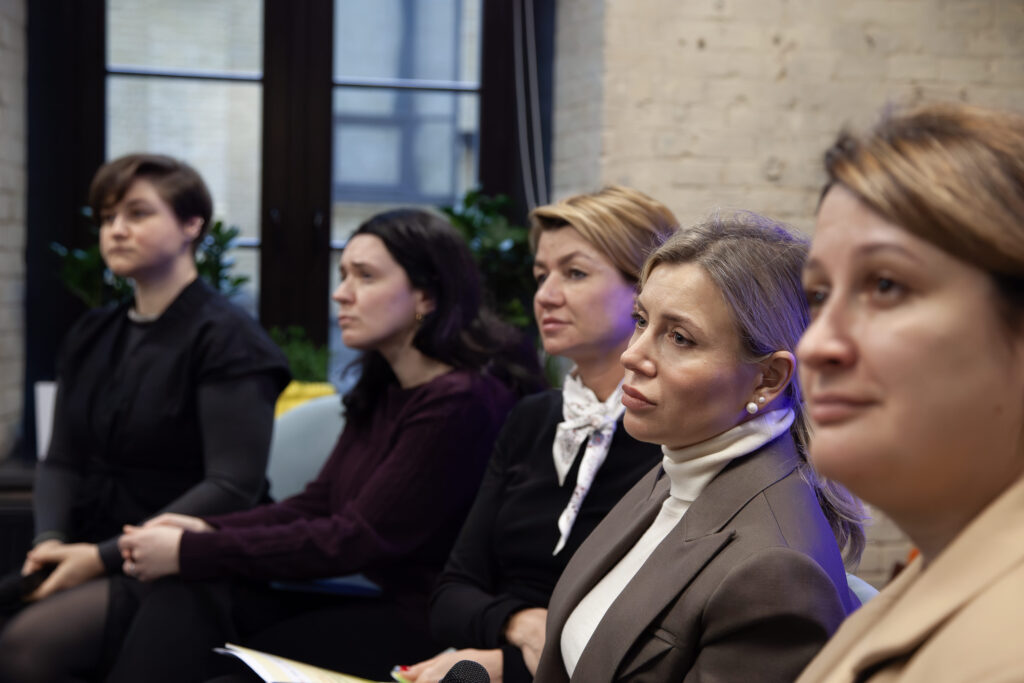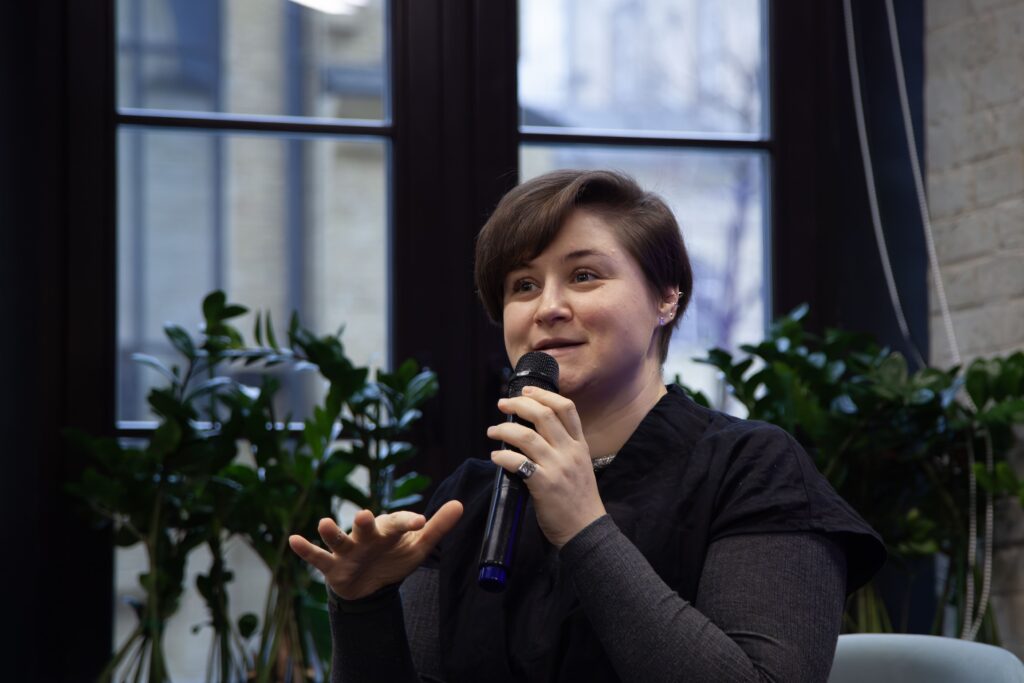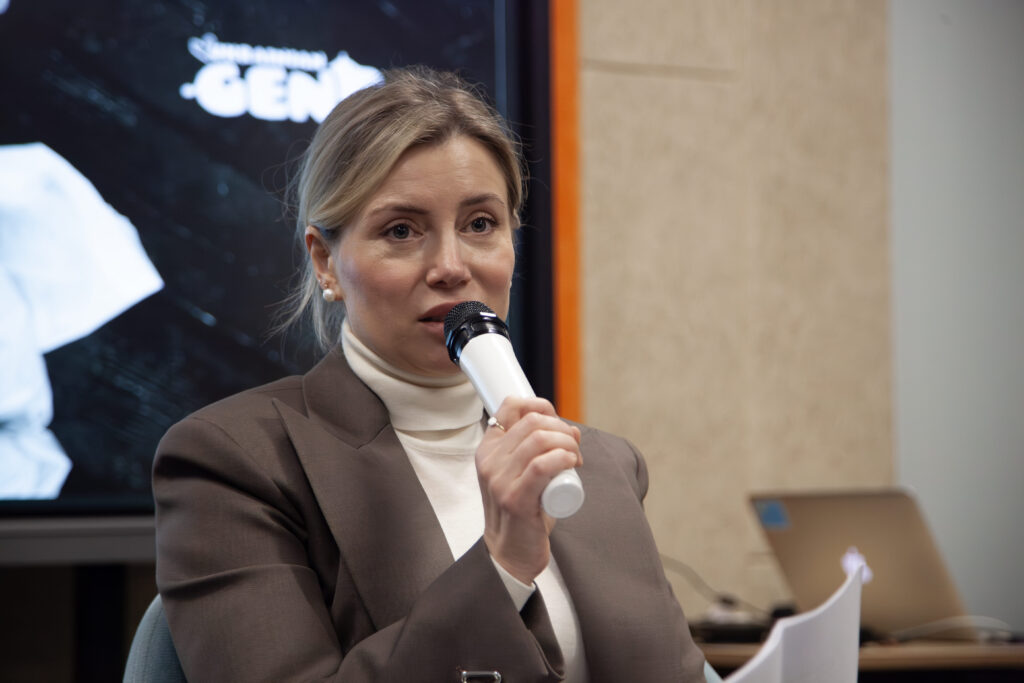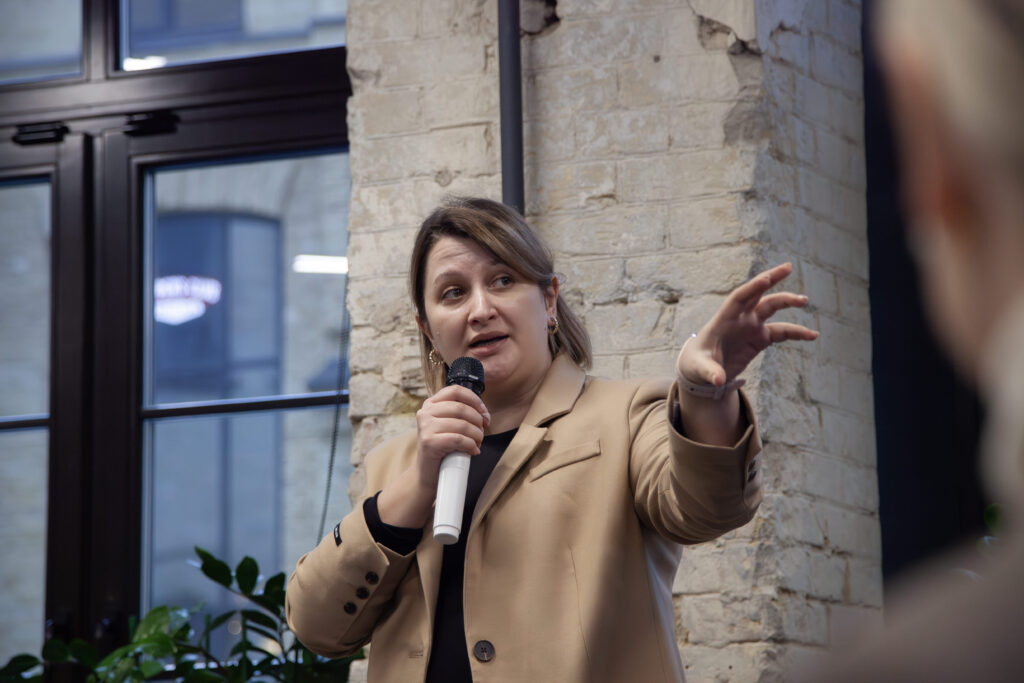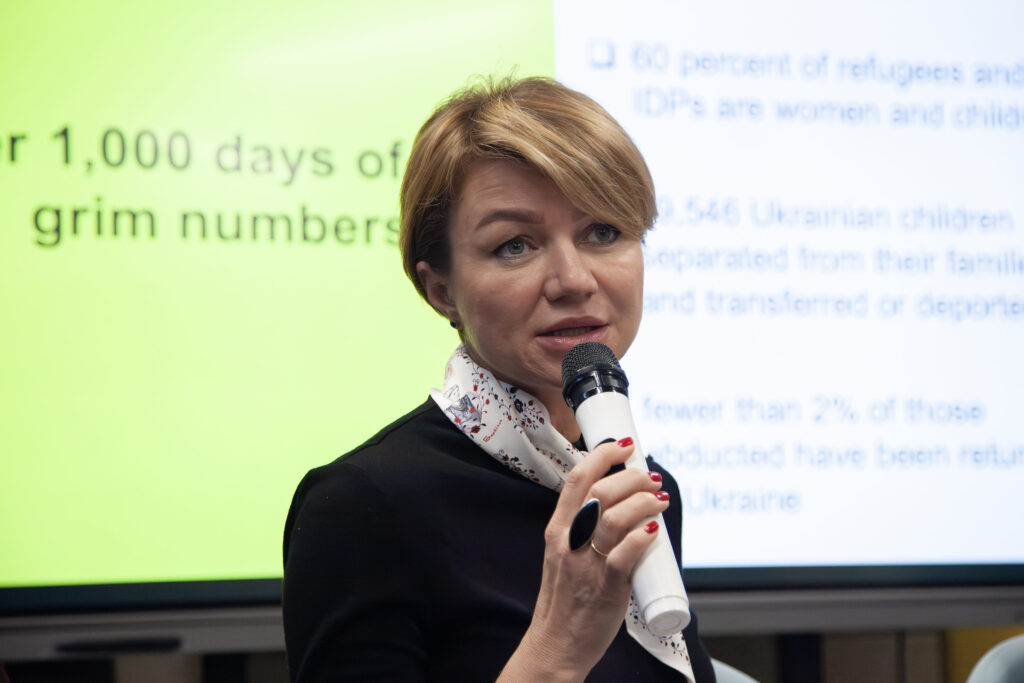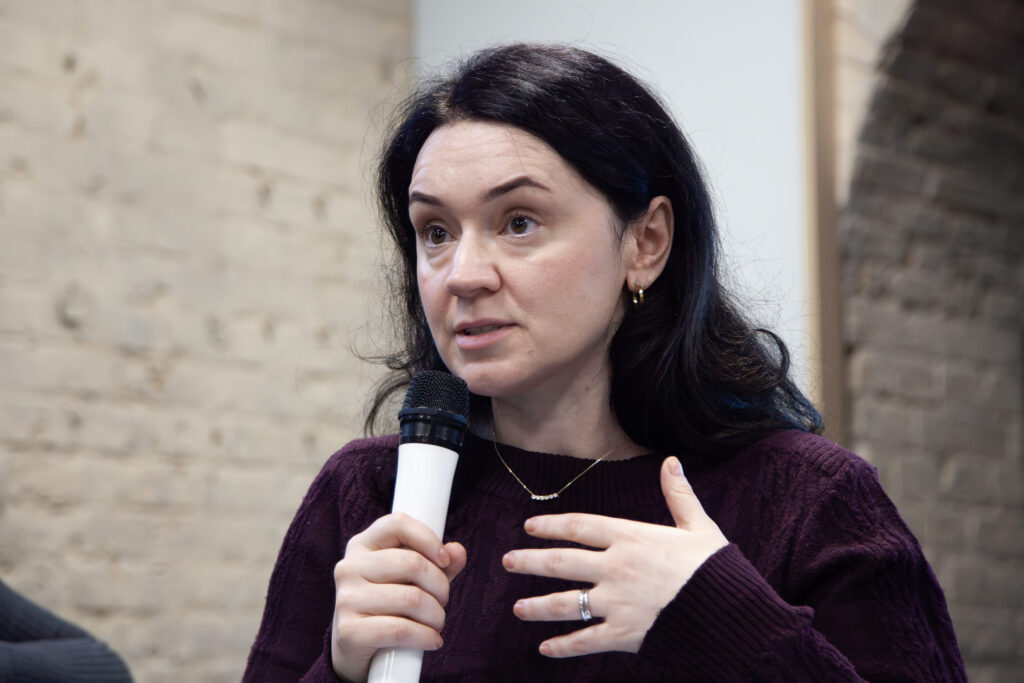«We cannot allow this to happen to our children, even on a small scale». The Center for Civil Liberties held a discussion «No Child of Ukraine Should Be Left Alone with the Experience of War»
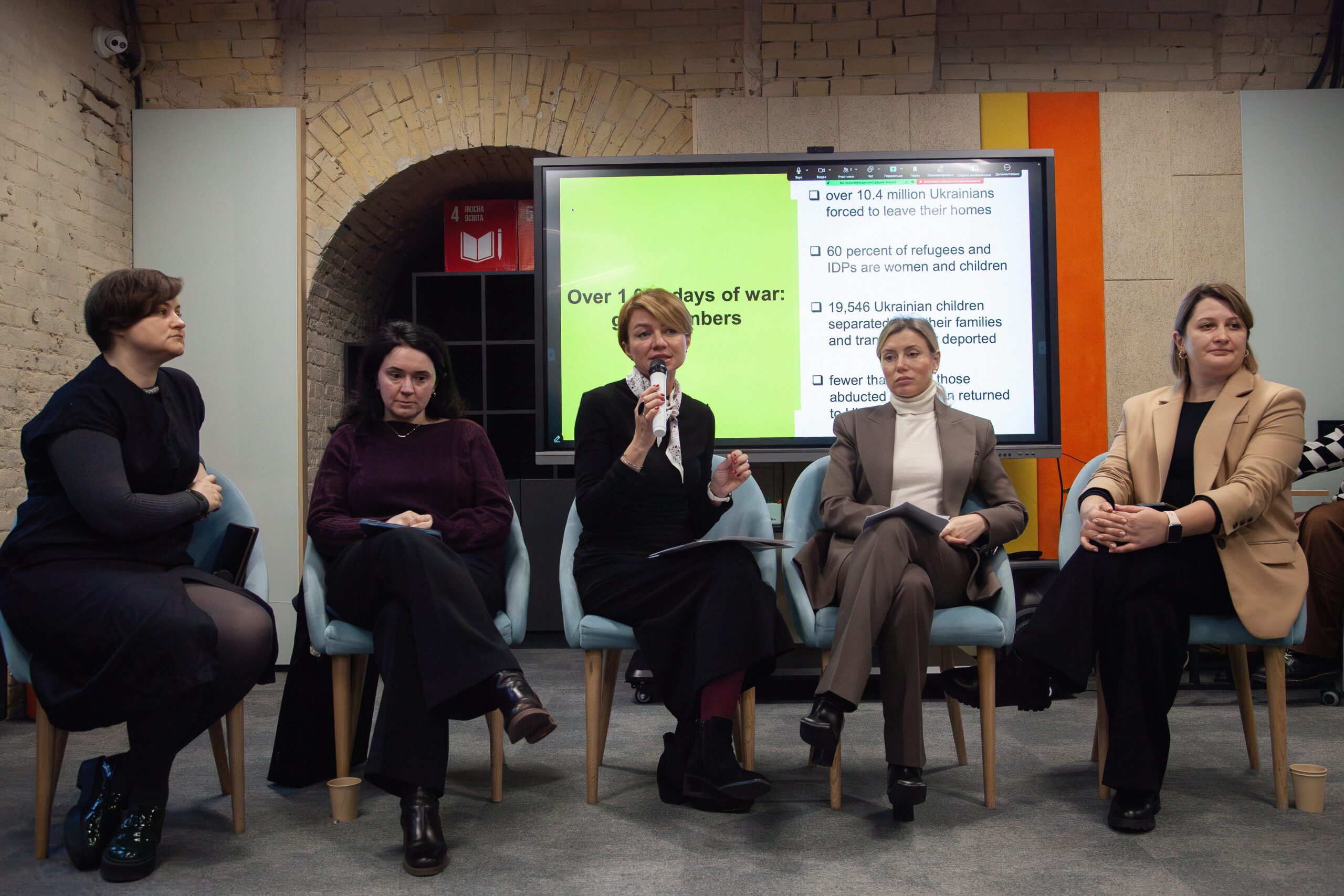
On Monday, December 9, the Center for Civil Liberties, with support from USAID and PACT, hosted a panel discussion titled “No Child of Ukraine Should Be Left Alone with the Experience of War.” The event focused on the traumatic experiences of children during the full-scale invasion and the challenges of growing up in a war-torn environment. Speakers specializing in psychological support for Ukrainian children shared real-life cases from their work.
The invited speakers were:
Olena Rozvadovska, Ukrainian children’s rights advocate, co-founder, and head of the Voices of Children Charitable Foundation;
Halyna Skipalska, a human rights activist and gender expert, a Country Director for HealthRight International in Ukraine and Executive Director of the Ukrainian Foundation for Public Health;
Natalia Masiak, a child psychiatrist, Head of the Mental Health Clinic at the Lviv Clinical Center for Pediatric Medicine;
Oksana Lebedieva, a public figure, Founder and the CEO of the Gen.Ukrainian NGO.
The panel discussion began with the speech of Olena Rozvadovska, which addressed the long-term effects of the war and their impact on children.
“After three years of constant war, life in cities remains unpredictable and far from peaceful. For example, children in Kharkiv lack the opportunity to play outdoors as normal children would.
This is particularly tragic because peer interaction and outdoor play are essential for children’s development. Even though modern infrastructure, such as bomb shelters, may provide safe play areas, the daily routine of living under constant threat significantly affects children’s well-being.
Long-term stress manifests as isolation and emotional strain. However, while many educational and psychological programs, as well as social campaigns, promote the importance of mental health, many parents still fail to recognize the need for psychological support for their children. This lack of awareness creates a significant barrier.
Reflecting on 2015, I recall how bringing a child to a psychologist often required informing parents about the importance of such action. Even now, our psychologists report spending considerable time on psychoeducation for parents and children alike,” Olena said.
Olena also highlighted the main reasons for the psycho-emotional struggles among children.
The list includes traumatic experiences, such as witnessing destruction and airstrikes; prolonged isolation at home due to online learning; and family-related challenges.
“More than 10.4 million children have been forced to leave their homes, and nearly 60% of refugees and internally displaced persons are women and children. A total of 19,546 Ukrainian children have been separated from their families and transferred or deported, yet fewer than 2% of those abducted have been returned to Ukraine.
At the same time, 1,496 educational institutions and 662 healthcare facilities have been damaged or destroyed. These numbers change daily and, of course, profoundly affect families and children, contributing to the long-term consequences of war.
What we observe is an increased level of stress, a disrupted sense of stability and security, a broken education cycle, and significant barriers to accessing critical healthcare services, including psychological support and rehabilitation,” Halyna told.
“In March 2024, a document titled “Mental Health of Adolescents Exposed to the War in Ukraine” was published by Stanford University in collaboration with Ukrainian colleagues. The study surveyed over 9,000 adolescents, including 603 children living abroad, to assess their mental well-being.
An overwhelming number of children reported having at least one or two psychological disorders. The most common issue is severe psychological trauma or PTSD, followed by depression, with some children also experiencing eating disorders.
Another particularly vulnerable group includes children with Autism Spectrum Disorder (ASD). Those familiar with working with autistic children understand how severely the war disrupts their lives. Autistic children are especially sensitive to stimuli such as sound and smell and require a strict routine—something that is nearly impossible in wartime conditions,” Natalia reported.
“We live in truly unprecedented times, witnessing devastation and psychological trauma on an immense scale. The psychological toll of war has never been studied at the level we are experiencing today.
For instance, the trauma of WWII poisoned nations, families, and individuals for generations, leaving deep scars on societies.
We see how decades of war and unaddressed trauma in regions like the Middle East have created fertile ground for manipulation, turning child victims of war into future perpetrators of violence.
There has been minimal research on how to care for and support children who endure the psychological trauma of war. Unhealed trauma encapsulates, fundamentally altering children’s personalities. It’s like a time bomb—we don’t know when it will explode.
We cannot allow this to happen to our children, even on a small scale,” — Oksana stated.
Center for Civil Liberties operates with the support of the European Union.

